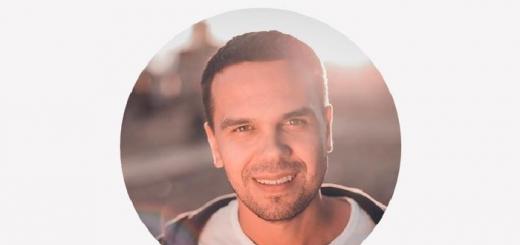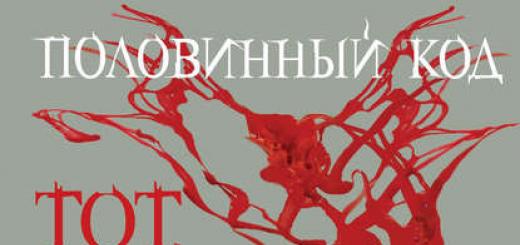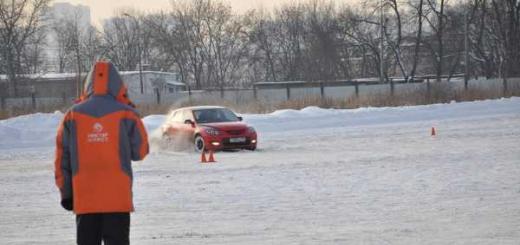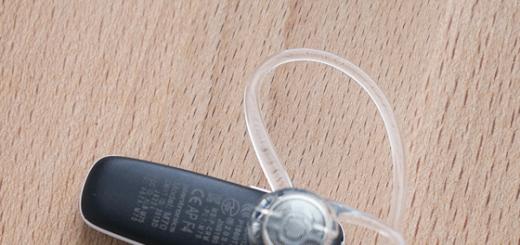Preparation courses for the Unified State Examination 2020 in chemistry, biology, Russian language and mathematics at the Paramita Educational Center will help you effectively prepare for the exams.
Recruitment continues in mini-groups (4-6 people)
How are the preparation classes for the exam:
1. Classes are running mini-groups of 4-6 people. We have the smallest groups among the USE preparation centers! Therefore, our teachers pay attention to each student.
2. The teachers of the center are professional teachers - university teachers(candidates and doctors of sciences) with a large and successful work experience, leading active teaching activities at Moscow State University. M.V. Lomonosov, PMGMU them. THEM. Sechenov, RNIMU them. N.I. Pirogov and other leading universities in Moscow, USE experts.
3. When preparing and conducting classes, it is used latest literature, as well as author's developments in preparation for the exam: video materials, training presentations, mannequins, etc.
Areas of preparation for the exam:
- biology(10-11 grade, applicants)
- maths(10-11 grade, applicants)
- chemistry(10-11 grade, applicants)
- Russian language (10-11 grade, applicants)
Fill out the form below
and we will contact you as soon as possible:
Firstly, it seems to me that the most important thing in preparing for exams is regularity. Initially, you need to distribute all the topics that are reflected in the exam, literally by day. From day to day, fulfill the minimum that you set for yourself, and never deviate from the plan. Something did not do what was planned - a fine.
Second, start now. It doesn’t matter how much time is left before the start of the exam, it doesn’t matter what time of year it is outside the window, it doesn’t matter what time it is at the moment, even if it’s 3 in the morning. Just now raise your ass and go.
Biology and chemistry are subjects that are quite voluminous. I advise you to make notes on each topic, then memorize them understanding. It is better to support each topic covered with all sorts of thematic tests.
School biology includes botany, zoology, anatomy (it's ridiculous to call this section anatomy) and general biology. It is better to focus on general biology (about 70% of questions in KIM in this section), followed by anatomy and zoology. Less just botany. It is better to make summaries on each topic from several books at once, so we ran to the library until we sorted it out. Directly from the books I can advise:
- Dmitry Solovkov "USE in biology. Practical training". The book is quite popular, so it's a little expensive, but it's worth it. Personally, I took it as a basis.
- R.G. Hare "Biology manual for applicants". It’s also a good book with theory, I haven’t read it personally, but they say it’s good.
- Chebyshev "Biology. A guide for applicants to universities. In 2 parts". Written by the head of the Department of Biology, PMSMU. Infa is quite complicated, but you can master it.
- Shustanova T.A. "Biology tutor"
If about each department separately, then in botany it is best to take 1) Korchagina (grade 6), 2) Traitak (grade 6). In zoology 1) Traitak (grade 7), 2) Bykhovsky (grade 7-8), 3) Nikishov (grade 7-8). In anatomy, I trained according to Solovkov, but Rokhlov is also good. By general biology Teremov, Petrosova (grades 10, 11).
Some textbooks are boring. Now internet:
- Daniel Darwin is definitely a master of his craft. Everything is always the most difficult explains the most plain language. He has a group in contact. He conducts classes in the form of webinars (there are both free and paid ones).
- Jeanne Freud - there is a channel on YouTube
- Maria Semochkina - also YouTube
Now chemistry. In chemistry, as for me, there is less theory than in biology. Of the textbooks, Gabrielyan profile is better. Of the serious benefits - "Tutor in Chemistry" Egorov, "Big Reference" Doronkin. KIM is better to decide from Kaverina, if the masochist is a thematic training from the same Doronkin. We’ll also dilute it with the Internet: Liya Mendeleeva also conducts webinars
In 2009, the Unified State Examination (USE) became the main form of the final state certification of all school graduates in the Russian Federation.
Based on the results of the Unified State Examination, applicants are admitted to all Russian universities.
Therefore, tutors who work with high school students and applicants should now focus on targeted preparation specifically for the exam.
Undoubtedly, preparation for the One State Exam has its own specifics, it is quite obvious that a specialist-tutor should take this specificity into account.
For example, it is quite difficult to pass the USE with a high score for a schoolchild - a prize-winner or a winner. All-Russian Olympiad, here, what is called manifested "woe from wit." On the other hand, an ordinary student whose school performance leaves much to be desired, having resorted to the help of a specialist, can pass the exam with a fairly high score.
It is known that a student begins to study with a tutor mainly a year before the exam, at best two years before. There are even cases, which, unfortunately, are not uncommon, when the parents of a child “grab their heads” a month before the exam.
In such a difficult situation, when time is running out, and the knowledge of the ward is practically zero, the tutor must be able to competently organize the educational and cognitive activity of the child. In addition, you need to be able to select important, key points from the content of the subject, on which the attention of the compilers of the USE tickets is focused.
In this article, we will not go into the intricacies of the methodology. Let's just give a look at the problem and generalize personal experience.
So, where to start and how to plan the preparation of a student for the exam in chemistry and biology?
Depending on the level of preparation, which is checked at the first lesson, an individual curriculum is drawn up for each student. Training is carried out according to individual educational trajectories.
It is known that the exam in chemistry and biology consists of three parts, different levels of complexity. Each question focuses on a specific topic. Content academic disciplines while grouped into several blocks.
Biology
1. Biology is the science of wildlife.
2. Cell as a biological system.
3. Organism as a biological system.
4. Diversity of organisms.
5. Man and his health.
6. Superorganismal systems. Evolution of the organic world.
7. Ecosystems and their inherent patterns.
In chemistry
1. Chemical element.
2. Substance.
3. Chemical reaction.
4. Knowledge and application of substances and chemical reactions.
Based on a strict content structure, it becomes possible training in the five main approaches:
Preparation for content blocks (for students with a high level of preparation (from 60% on trial testing) and planning classes 1-2 years before the exam);
Preparation for USE issues all three parts (for students with an average level of preparation (30-60%) and planning classes less than a year before the exam).
Preparation for Parts A and B (for students with low level training and large gaps in knowledge);
Preparation for Part C (for those who did an excellent job of preparing for Parts A and B);
Combined preparation for the exam (as a rule, it can only be done with students who plan classes 2 years before the exam). This includes training on content blocks and training on all three parts.
It should be noted that training in content blocks is variable. That is, for specific purposes and for specific students, blocks can be “rearranged”. For example, from our experience it follows that it is better to start preparing for an exam in biology with the block “Biology - the science of wildlife”, and then proceed to the study (repetition) of the block “Supra-organismal systems. Evolution of the organic world”, i.e. follow the path of deduction (from the general to the particular), which is very fruitful when working with strong students. With schoolchildren with a low level of preparation, it is more expedient to start the repetition from the Botany section, i.e. follow the path of induction (from the particular to the general).
Preparation for the exam in chemistry with students with low and medium levels of preparation is more expedient to start with the topic “Basic concepts of chemistry. Nomenclature of inorganic and organic substances.
With strong students, at the same time, it is better to follow the deductive path, i.e. start the repetition with the “Structure of the atom. Chemical bond.
Particular attention is paid to the following topics:
Main classes of inorganic substances;
Redox reactions, electrolysis;
Reactions in electrolyte solutions, hydrolysis;
Chemical kinetics and chemical equilibrium.
It should be noted that at the moment the vast majority of schoolchildren have poor knowledge of the section “ Organic chemistry”, which may well be due to the transition to a concentric construction system school programs, i.e. part of the material in this section is studied in grade 9, and knowledge is deepened in grade 10. Let's not be afraid of this word, "porridge" appears in the students' head. Therefore, it is best to start preparing for this section from a “white sheet” and pay special attention to it.
Particular attention in chemistry should also be given to solving computational problems and exercises of the "chain of transformations" type. The "chains of transformations" are good, in our opinion, because they can be used to study a fairly large number of chemical reactions in a short time. And not only to study, but also to consolidate the acquired knowledge.
What else can a tutor use to intensify the course of preparation for the exam?
Currently, distance learning for schoolchildren is intensively developing. And it would be at least unreasonable not to use its achievements in the practice of tutoring.
In 2009-2010 academic years, we tested a model of integration of full-time and distance learning. What does it mean?
Everything is extremely simple. Part of the content educational material(relatively simple themes, tests, homework, etc.) is transferred to the remote form. In face-to-face classes, attention is paid only to complex theoretical issues. A huge amount of valuable study time is freed up.
The student can no longer treat homework negligently, or simply not do it. He knows perfectly well that any of his actions, any step, any task will be checked and evaluated by the teacher. In addition, in the Moodle system specially designed for this, there is the possibility of automatic assessment test items. At the same time, the teacher does not need to spend precious time checking tasks of a closed type, the system itself will evaluate everything and “give” the result. Parents, as well as the tutor, can control the work of the child.
There are times when a student gets sick, well, what to do, with whom it does not happen. In this situation, classes can also be conducted remotely without wasting time.
At the end of the article, we emphasize that a modern tutor has a lot of opportunities to improve their activities, you just need to use these opportunities in time and competently.
© The article was written specifically for the site "Repetit-center"
Chemistry and biology are quite complex sciences, not every student chooses them as their favorites during their studies. On the other hand, at all times they belonged to the demanded industry, they required certain knowledge, character and predisposition. It is believed that these sciences are given to units, because they are complex, but in fact, it is often enough to understand their basics for interest to appear, and it becomes clear that this is not just calculations and memorizing terms, but a whole most interesting and fascinating world.
On the one hand, graduates, knowing such disciplines, are ready to realize themselves in many areas in the future. On the other hand, exams are difficult, and you can enter many universities only by passing additional subjects. The fact is that these directions alone are not enough. For the most part, it is required to have results in such subjects:
- Maths.
- Russian language.
- Chemistry.
- Biology.
- Often physics or natural science are added here.
As a result, a graduate can go to many places, but for this you need to take a lot of subjects. Not every applicant will agree to prepare for four subjects where basic mathematics and language can be dispensed with.
Where can I go if I passed biology and chemistry
In fact, there are quite a few professions for which only one of these items is enough. But if you come to the admissions office not only with biology, but also with chemistry, the chances of admission (especially on a budgetary basis) increase. But where can you go if you passed both chemistry and biology? Definitely going to medical school. Today, many leading medical universities require not only these two disciplines, but also the Unified State Examination in the Russian language. These include:
- First MGMU them. Sechenov.
- IMU them. Pirogov.
- State Medical and Dental University.
- GMU them. Pavlova.
These are universities in Moscow and St. Petersburg, but in almost all major cities there are prestigious and large educational establishments this direction. But it should be understood that even after passing required exams, you can enter the budget with great difficulty. The competition for one place is big, first of all, people who have scored the highest scores in biology and chemistry go first, language plays a smaller role here. Priority is given to students who participated in Olympiads and won prizes, and can also confirm participation in other competitions and conferences.
Other options for both disciplines
Where else can you go if you passed these two disciplines? After all, becoming a doctor is very difficult, not every applicant is ready to go to such a university, especially since the load and responsibility in it are enormous. There is another option to go to the veterinary academy.
If you are not indifferent to animals, you are not squeamish, you want to get a profession that is profitable and in demand at all times, then the question “Where can I go?” disappears by itself. Veterinarians have a lot of customers, especially considering that almost every family now has a pet. Studying at such a university is easier than at a medical institute.
Definitely both biology and chemistry are needed for the profession of a biochemist. Such a specialist also quickly finds where to go to work. Having a diploma from the Faculty of Biochemistry, you can go to work in many laboratories related to medicine, the food industry, and pharmacology. Biochemists often find work in beauty centers, they may even work in a hospital.
In addition, the profession of an agronomist is now gaining immense popularity. In Russia, the agricultural sector is constantly developing and is promising. It requires both chemistry and biology. As a result, a student can study as a vegetable grower, botanist, agricultural engineer, breeder.
Options for chemistry and biology separately
There are certain specialties where you can take only chemistry or only biology, but the presence of the second discipline plays a certain role and is a priority for the commission. Passing chemistry, you can easily go to the following areas:
- pharmacology;
- theoretical chemistry;
- industrial chemistry;
- agronomy (in some specialties biology is not needed);
- Fire safety.
Fire safety engineers are required in almost any enterprise or firm. It will require not only knowledge of chemistry, mathematics and language, but also excellent physical fitness. As a result, you can become an employee of the Ministry of Emergency Situations, a fire inspector, an engineer. All these professions are prestigious and in demand.
Pharmacology at any time is a promising industry. You can get a job as a pharmacist or develop and create new medicines. Specialists go to work in pharmacies, hospitals, factories.
Theoretical chemistry is required by laboratory staff, as well as chemists who want to stay in science. Unlike the industrial one, where it is realistic to become an engineer, a technologist in many industries, both organic and inorganic compounds. You can work in almost all factories and industrial facilities in the laboratory and workshop, in the technology sector.
Biology: what is needed
Biology is also given a lot for which specialties. For example, it is needed for psychology. This profession is now in demand, many universities have or are opening psychological faculties. As a result, you can become such a specialist:
- defectologist;
- psychologist;
- psychoanalyst;
- psychotherapist.
Every academic year hundreds of thousands of Russian graduates, and with them graduates of past years, who for some reason were unable to get into universities earlier, begin to frantically rush about in search of “their” institution - a university that is the best and most profitable in terms of their future career and where is your profession.
These issues need to be resolved as soon as possible, because you need to register for the exam, and after all, the set of subjects for each profession is different. And you also need to combine the choice with the interests and abilities of the student. After all, a humanist will not study effectively with natural sciences, and a techie is unlikely to be happy with the Unified State Examination in literature.
Here, each graduate has his own path - both in terms of abilities and needs. You can give examples of applicants who, having passed the exam in chemistry, biology, the Russian language, are considering where to go.
Natural sciences
School time is not only a happy childhood and first love, it is also an educational reality with examples of "the reaction of aggressive sulfuric acid and alkali" and "the structure of a group of brothers in mind - monkeys." And only adults can laugh at pistils and stamens, twenty years after graduation.
Whether you are at least but the subjects of chemistry and biology - two rather complex disciplines, not every high school student prefers them as their favorites during the period of study. It is easier to work with humanitarian subjects that do not require a large number special terms and numbers. Moreover, will you suffer if you pass biology, Russian, chemistry, where to go. The country is large, there are many universities and specialties.
However, at the same time, natural science disciplines in all eras (from Russian tsars until recent years) met the requirements of the level of highly scientific subjects, a strong character and a penchant for skills. There is an opinion among teachers that only selected students can be submissive, how difficult and incomprehensible they are for schoolchildren. That is, to pass for smart and talented, it is enough to become a "biologist" and "chemist".

In addition, specialization at school in these disciplines gives good prospects in the future. After all, many professions, highly paid and interesting, are based on these sciences.
So after passing the exam(chemistry, biology, Russian language), where to enter?
Entrance exams
But, descending from heaven to earth, one must understand that there is one serious obstacle, which teachers will begin to talk about even in high school. And this is not only a problem in the complexity of the entrance exams. Mainly, the difficulty is in the interaction of sciences, and hence, academic disciplines. When entering various Russian universities, in addition to these two subjects, it is also necessary to take compulsory ones, most often it is the Russian language and mathematics.
And this is already a serious problem. Even in our fertile land, the Lomonosovs are not born through one person in order to pass the most difficult exams as a whole set. Is it worth it to suffer after passing the exam in the disciplines "biology", "Russian language", "chemistry", where to go? As they say, the skin is not worth the candle.
Fortunately, both heads of universities and admissions committees understand this, offering possible options.
According to the first, the most difficult, it is proposed to take biology and chemistry (core subjects) in parallel with the Russian language and mathematics, which are also almost core. If the competition is great, then the risk justifies itself and the newly-minted students are all, as one, smart, capable and eager to gnaw at the granite of science. So, for example, applicants do not have to suffer, passing the exam in the disciplines "chemistry", "biology", "Russian language", where to go. Chelyabinsk presents to applicants a number of disciplines of the natural science cycle.

However, in our time, and the level of knowledge is declining, one has to stick to more modest requirements for applicants. In practice, there are quite a lot of specialties, for admission to which only one of these disciplines is enough.
The medicine
So, driven by your abilities along the first, most difficult path, you passed the exam in all subjects of this cycle. It remains only to decide where biology, Russian language, chemistry are needed for admission?
The first (and probably the most correct) impulse is medicine. Unfortunately, people will always get sick, and with the development of science, the number of specialties in this area is only increasing. There are quite a lot of medical universities, both in terms of the level of popularity of the complexity of admission, in terms of the number of specialties and opportunities for further scientific and administrative careers.
So, you passed chemistry, biology, Russian. and St. Petersburg in medical specialties? Several in the capital medical universities known for their history, traditions, experienced staff and the latest technologies. For admission to these educational institutions, the Unified State Examination is required in these three disciplines. Among them are:
- Medical University. Sechenov.
- Medical University. Pirogov.
- GMSU.
- Medical University. Pavlova.
These are the universities of the two largest cities in Russia, but in almost all large cities there are popular and large educational institutions a similar direction. And to guarantee (the competition for one place is rather big), you need to get high marks in the Unified State Examination in biology and chemistry, have a good portfolio of certificates and first places at school and district olympiads and diplomas in various competitions.
Medicine in other regions
Russian education has always been famous for medicine. Currently, this direction is being strengthened again. For example, you should not suffer when deciding where to go after passing the Unified State Examination in Bashkiria in chemistry, biology, the Russian language. Ufa - The largest city region and has many opportunities:
- Specialty "Medical and preventive work", full-time study on the basis of 11 classes at the Department of Microbiology of the Belarusian State Medical University in Ufa.
- The specialty "Pediatrics" trains pediatricians - doctors in the field of clinical medicine, which examines the state of health of the child in the course of his development.
- The specialty "Pharmacy" trains specialists in the field of drug handling, including the development, scientific study, production, application and other specialties.
No need to look for, after passing the exam in the disciplines "biology", "Russian language", "chemistry", where to enter. There are a lot of training options.
Where else to do with such a set of subjects for the exam?
The training options discussed represent only the tip of the iceberg. modern education. No need to suffer, passing the exam in the disciplines "chemistry", "biology", "Russian language", "mathematics". Where to enter, graduates will be prompted by the websites of admissions committees and the websites of universities.
That's just one direction - biology.

Biological disciplines will always be an important part of human education. Because of this, graduates in this field are constantly in demand. high school offers several variations of biological disciplines:
- Anthropology (or paleontology) combines a number of scientific branches connected with the study of the genesis of mankind. The acquired material will be borrowed in many parts of science. The field of activity is very interesting, but getting a job in the specialty is quite difficult.
- Genetics. The discipline of theoretical orientation. The applicant should be interested in various types of genes, understand the problems of heredity. After graduation, you can get a job as a genetic consultant, genetic engineer.
- Zoology is the science concerned with the study of animals. The specialist undertakes to study the life of animals. In addition, he makes experiments and studies the manners of animals in different conditions.
- Biophysics - form scientific activity, meaning the analysis of the impact on the body of various physical factors. The specialist must be able to work with equipment for conducting experiments.
- Soil science is the science of studying and organizing activities aimed at preserving and improving soil fertility. Such specialists develop the characteristics of the studied layers of the earth, etc.
These specialties show that there is no need to doubt, thinking, having passed the Unified State Examination in the disciplines "biology", "Russian language", "chemistry", where to go.
Veterinary
In addition to classical medicine, there are a large number of specialties that are very popular because of their value and usefulness. In Russia, a large number of livestock in agriculture, many pets in the form of dogs and cats, there are also a wide variety of exotic animals: chameleons, snakes and motley pigs. And they get sick quite often too.

If you love animals, do not like to mess with them and treat them, then you can get a profitable and always in demand specialty. Veterinarians have permanent job and the opportunity to earn a decent income. It is easier to study in such a university than in a medical one.
For example, applicants from the north-west of Russia do not have to think about how to become a veterinarian, having passed the Unified State Examination in the disciplines "chemistry", "biology", "Russian language", where to enter. SPB provides great opportunities in this regard. in St. Petersburg State University veterinary medicine there are 320 seats. The Academy trains good, versatile specialists - veterinarians.
Biochemistry
Since the twentieth century, the profession of biochemist has become more and more famous and more and more needed. Already from the name it is obvious that this specialty is at the intersection of biology and chemistry. After graduating from the Faculty of Biochemistry, one can find large spectrum vacancies. Diploma in biochemistry will open doors a large number laboratories related to the field of medical research, food industry, pharmacology. Specialists in this area often get vacancies in cosmetic centers, they are also in demand in clinics.
Biochemical research for the purpose of quality control and the creation of new products are in many ways leading in various sectors of the economy, and this determines the profession of a biochemist.
This specialty is quite profitable. So, you don’t have to think, having passed the exam in the framework of the disciplines "chemistry", "biology", "Russian language", where to go. Novosibirsk is a city of scientific orientation and in many universities there is a specialty " medical biochemistry". Applicants can enter such a university only on the basis of 11 classes. The sphere of interest of specialists includes many living beings - from microorganisms to large mammals.

Agronomy
Having passed the Unified State Examination in the subjects "biology", "Russian language", "chemistry", upon admission, you can plunge into the field of agriculture.
Good old agronomy. After its entry into one of the most unpromising professions, in last years the rebirth of agronomy began. The specialty is very popular and seems very promising. This is due to the rise of the domestic agricultural industry. Sanctions, the attention of the state, the appetite of the citizens of our country lead to the fact that agriculture is developing at a faster pace. And agronomists, as leading specialists, bear not only the brunt of the work, but also receive a good income.
Agriculture is multifaceted. Both chemistry and biology are in demand here. As a result, within the framework of the specialty "Agronomy", a student can receive certain professions: a vegetable grower, a botanist, an agrotechnician, a breeder.
based on chemistry
In addition to the complex use of natural science disciplines, there are a number of specialties for admission to which you need to prepare for passing either chemistry or biology (however, the study of the second discipline has a conditional role and can be an important factor for admission committee).
Worth thinking about getting USE results in several disciplines (Russian language, biology, chemistry), where you can enter. The applicant has the right (in the presence of the Unified State Examination in non-core subjects marked for delivery in the lists of the selection committee) to apply for training in the following specialties:
- pharmacology;
- theoretical chemistry;
- industrial chemistry;
- agronomy (in some specialties biology is not needed);
- Fire safety.
Pharmacology in any era will be a promising occupation. A graduate in this specialty can either be a pharmacist in a pharmacy or work in a laboratory and develop more effective and safe medicines. Specialists go to work in pharmacies, hospitals, factories. Specialists in this area will never be left without work.

Theoretical chemistry is needed by laboratory workers, as well as those graduates who plan to work in science in the future.
Unlike the industrial sector, where you can become a technical worker, a technologist in many areas, both organic and inorganic chemistry, you can work in almost any enterprise in the laboratory and in production, in the technology department.
Administrative and technical regulations, the state of the modern economy have led to the fact that fire safety engineers are needed in almost any institution, regardless of specialization. Such an engineer will need not only theoretical knowledge in natural sciences, but also good physical preparation. If successful, the education received will allow the graduate to be an employee of the Ministry of Emergency Situations, a fire inspector, an engineer. All these professions are highly valued and in demand.
Many qualified specialists are trained in the Sverdlovsk region. There, the applicant does not need to look for, having passed the exam in the disciplines "chemistry", "biology", "Russian language", where to enter. Yekaterinburg offers training in the specialty "Fire Safety". This is a very difficult and responsible profession, involving a cycle of measures to prevent fires, extinguish fires and evacuate people in a difficult situation. Firefighters are trained here.
based on biology
Are you thinking, having passed the exam in the disciplines "Russian language", "biology", "chemistry", where can you go? You don't have to take all of these items. You can single out the main discipline.
Biology (in addition to the classic version) is also necessary for a large number of specialties. Thus, in particular, it is required for psychological sciences. Nowadays, biology is in great demand, in many domestic and foreign universities psychological faculties exist or are beginning to recruit. As a result, you can become such a specialist:
- defectologist;
- psychologist;
- psychoanalyst;
- psychotherapist.
Biology is also necessary for teachers. There is a profession of a psychologist-educator - a specialist who can simultaneously teach and treat children and adults. We must also remember about the rather multifaceted specialty of a biologist. Often, out of old habit, they are combined with the theoretical basis of the science of biology, but in practice in our time one can also be a zoologist, ecologist, biotechnologist. All such professions are needed in various sectors of the economy: industry, transport, and the agricultural sector.










